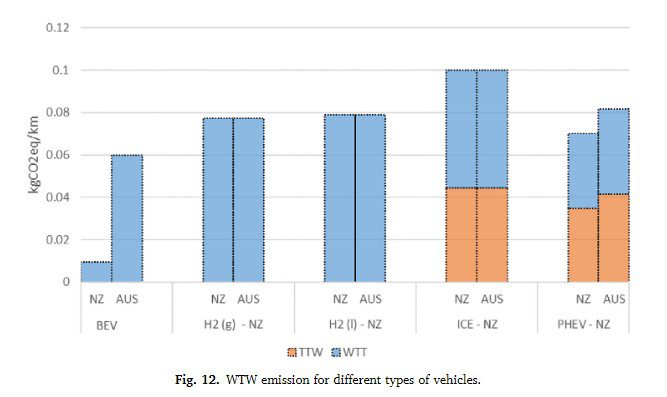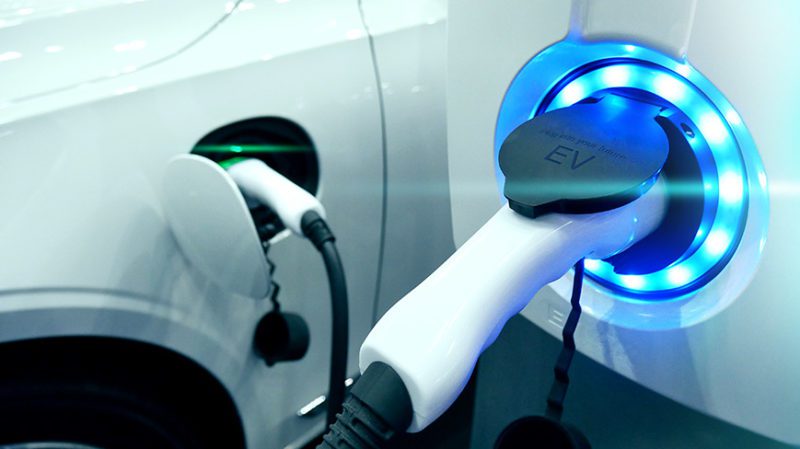New research has shown that battery electric vehicles rank as the better choice when it comes to cutting greenhouse gas emissions, in both Australia and New Zealand, even when using electricity taken from the grid.
The new analysis has been published by researchers from the University of Wollongong and the University of Auckland in the journal Energy Policy and compares the emissions footprints of battery electric vehicles (BEV), plug-in hybrids (PHEVs), fuel cell EVs (FCEVs) and petrol-fuelled internal combustion engined vehicles (ICE).
The researchers found that in both Australia and New Zealand, petrol fueled vehicles ranked as the most emissions intensive.
The researchers undertook a ‘well-to-wheel’ analysis of vehicle emissions, which took into account the full energy cycle of the different vehicle types, including emissions associated with the generation of electricity, the production of hydrogen for fuel and emissions released through the combustion of fuel in hybrid and ICE vehicles.
Reflecting the results of many different studies, the researchers found that the size of the emissions benefits of electric vehicles was dependent on the emissions intensity of the electricity grid used to charge the vehicles.
Australia’s electricity grid has a higher emissions intensity compared to New Zealand, but the researchers found that in both countries the battery electric vehicles came out on top in terms of achieving lower emissions.
New Zealand’s electricity grid is predominantly supplied by renewable energy sources, with around 60 per cent of electricity provided by hydroelectric plants, and a further 17 per cent supplied by geothermal and 5 per cent from wind.
Australia’s grid, by contrast, remains dominated by coal generation, with the market share of renewables beginning to edge towards 30 per cent. But in both countries, battery electric vehicles performed best in terms of lower emissions.
“In both countries, BEVs offer the best option for minimising emissions and ICE-powered vehicles produce the highest emissions,” the research says.
“In the case of Australia, the overall emission from BEVs is lower than that of FCEVs, PHEVs and ICE-powered vehicles, but is still much higher than the emissions in the New Zealand context,” the researchers added.

In New Zealand, battery electric vehicles were found to lead to 90 per cent less greenhouse gas emissions compared to the next-best option, plug-in hybrid electric vehicles – however hybrid models currently remained the more popular option for New Zealand drivers due to lower upfront costs.
“Despite this, PHEVs are popular in New Zealand as they are cheaper than BEVs and cater to consumers with ‘range anxiety’ – or fear of not being able to travel far with a car run on batteries,” the researchers said in a statement.
In Australia, battery electric vehicles also came out on top in terms of emissions benefits, and achieve a 40 per cent lower emissions footprint compared to fuel-cell hydrogen vehicles – which ranked better than plug-in hybrids.
The research shows that as the market share of zero emissions electricity supplies in Australia, and other countries grows, the emissions advantages of electric vehicles will only improve.
The researchers added that while hydrogen fuel cell vehicles show significant promise as a technology that could help cut transport emissions, major investment in supporting infrastructure, including refuelling stations and renewable hydrogen production facilities, will be necessary to make hydrogen vehicles a viable alternative.
“One of the main technical challenges associated with FCEVs is the high production cost and inefficient production methods. Although higher penetration of renewable can produce emission-free hydrogen, the energy required to produce hydrogen still imposes a huge barrier for the commercialisation of the technology,” the researchers say.



